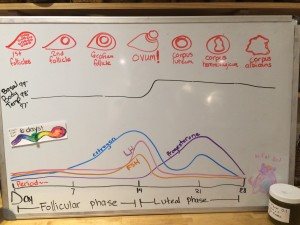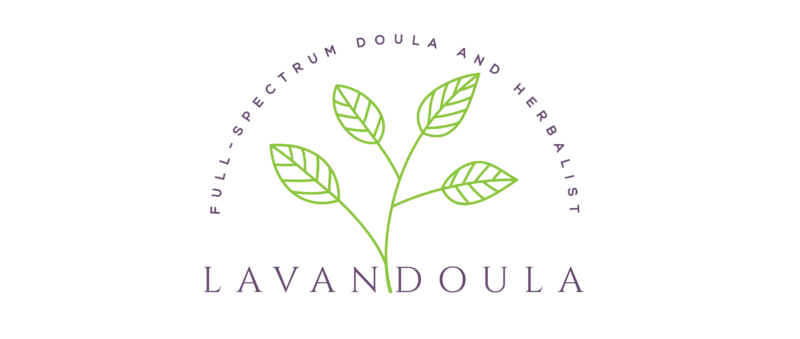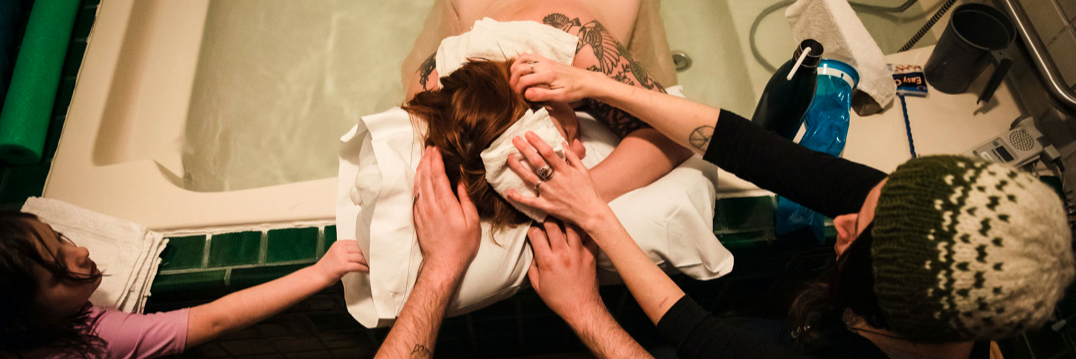To see what I’m up to this year, look at my new Events tab. Lots of low cost offerings this spring.
Fertility and Conception Resources
My current favorite podcast, Fertility Friday is an amazing resource with TONS of free information about body literacy and the fertility awareness method. She has interviews with many fertility professionals around the topics of endometriosis, PCOS, thyroid disorders, autoimmunity, diet and lifestyle.
The Fertility Awareness Center can be a great beginner-friendly resource for tracking fertility cycles and getting to know your own signs of fertility. They do use lots of gendered language throughout the site. There is this little note about how fertility awareness tracking isn’t only just for straight, monogamous cis-women.
Angela Bell is an acupuncturist in Cambridge whose entire practice focuses on supporting fertility, conception and pregnancy.
New Moon Acupuncture is my dear colleague Ece’s practice includes acupuncture, moxibustion, manual therapies, nutritional counseling and lifestyle recommendation. She is based in Watertown.
Fertile Ground is a queer-friendly nurse and midwife team who provide compassionate gynecological care, fertility consultations and inseminations in the Boston area.
Susanna Mauzy at Nightingale Midwifery offers a full-spectrum of home birth midwifery care. She also offers fertility counseling and at-home insemination support. Susanna also runs the local International Cesarian Awareness Network groups in Arlington, MA.
Birthing Beyond the Binary hosts queer-friendly conception and childbirth education workshops online. They also have workshops for providers on how to support queer families in their practices. Online groups for queer families can be found here, as well!
Maia Midwifery is the practice of west-coast midwife, Kristin Kali. She offers individualized fertility counseling online, and conception support in person in Seattle. Her practice is built around supporting the needs of the LGBTQ community, parents conceiving over age 35, and single parents. She shares an amazing resource list with examples of known donor contracts, and parenting agreements for families who have more than two parents.
Choice Moms Podcast has a large amount of discussions and information surrounding fertility, conception, building a family as a single parent, adoption, conception with donor sperm and many topics related to these.
On Being a Queer Doula and Using Gender Neutral Language
As a toLabor trained birth doula, I only recently started listening to the toRaise Doula Podcast, produced by the executive director of the organization, Thérèse Hak-Kuhn, and Richmond Virginia doula, Melanie Headley. Thérèse was actually the woman who facilitated my training in 2010, and hearing her voice brings me right back to my first intensive exposure to birth work! In listening to the recent episodes of the podcast, I realized Thérèse often uses gender neutral language when speaking broadly about pregnancy. She has extensive experiences in working with families, mothers and women in labor, but I wanted to send her a note of appreciation for not excluding everybody else in her choice of language.
Much to my surprise, she wrote back immediately to let me know she was planning on a podcast focused on supporting the LGBTQ community, and admitted she was actively working to be a better ally. She invited me to be on the show to talk about my experience being a queer doula, and to talk about how doulas can best support queer families.
Check out my interview on the August 3rd episode of the toRaise questions doula podcast, #83 How To Support the LGBTQ Client, on Stitcher, libsyn or iTunes! Also take a look at the toLabor website, where they’ve posted a list of resources that we talked about in this episode.
In mentioning the “list of midwives and birth workers who are against using gender neutral language,” I wanted to add a few more details. When Midwives of North America (MANA) announced last year that they were adding gender-neutral language to their core competencies documents, a list of birth workers identified as “Woman-Centered Midwifery” (including Ina May Gaskin herself!) wrote an “Open Letter To MANA,” opposing the use of language to include anybody who is not a cisgender woman. I’d link to their letter or website, but it seems to have since gone absent from the internet! Luckily, Birth for Every Body, a community of queer-friendly birth workers quickly organized to write a response to their letter. Snopes has a little article about how this went down, and how the experiences and opinions of the trans community have been completely misunderstood by much of the midwifery community.
There is a great list of gender and queer parenthood related resources on the Birth for Every Body website.
A Full-Spectrum Fertility Chart
A few weekends ago, I had the opportunity to teach first year apprentices at the CommonWealth Center for Holistic Herbalism while the school’s co-directors, Katja and Ryn, were out in Colorado at the American Herbalist’s Guild Symposium.
It was a really fun weekend. Kim from Blue Vervain Farm facilitated children’s health, my beloved roommate Gavin taught about men’s health from a refreshingly queer perspective, Danielle at Growing Habits helped with our cold and flu season materia medica and I was able to teach about women’s reproductive health from my full-spectrum doula perspective.
I began with giving some background on the fertility cycle. We are born with 4 million follicles. By the time we reach puberty, we have about 40,000, ready to mature one (or two)-at-a-time to be ovulated. Progesterone warms us, many hormones constantly in flux. Nobody’s cycle is quite as picture-perfect as the one I had fun drawing as a teaching tool.

I am grateful for the opportunity to speak about fertility, pregnancy prevention, birth control options, miscarriage, abortion, abortion options, pregnancy in the first, second and third trimester, labor, birth, breastfeeding and postpartum considerations all in one day. (Not to mention the herbs! It is an herb school, afterall…)
It is true that while nearly one third of pregnancies end in miscarriage, it is one of the most silenced fertility experiences. It is true that while one third of women in the US will have an abortion before age 45, cultural stigma hides that “normalcy” from the mainstream. It is true that while the majority people who choose to have an abortion are already parents, our cultural dialogue around fertility states that abortion and birth are two opposites, never to be touched upon in the same sentence, never to be considered within the same lifetime.
As a doula, I have supported women who struggled to conceive for years, after having miscarriages medically managed by D&C procedures. I have supported survivors of violence, who had to terminate pregnancies that resulted from brutal attacks on their bodies. I have supported substance users choosing abortion, queer families choosing gestational parenthood, and single moms bereaving their babies, born still. My practice is full-spectrum.

